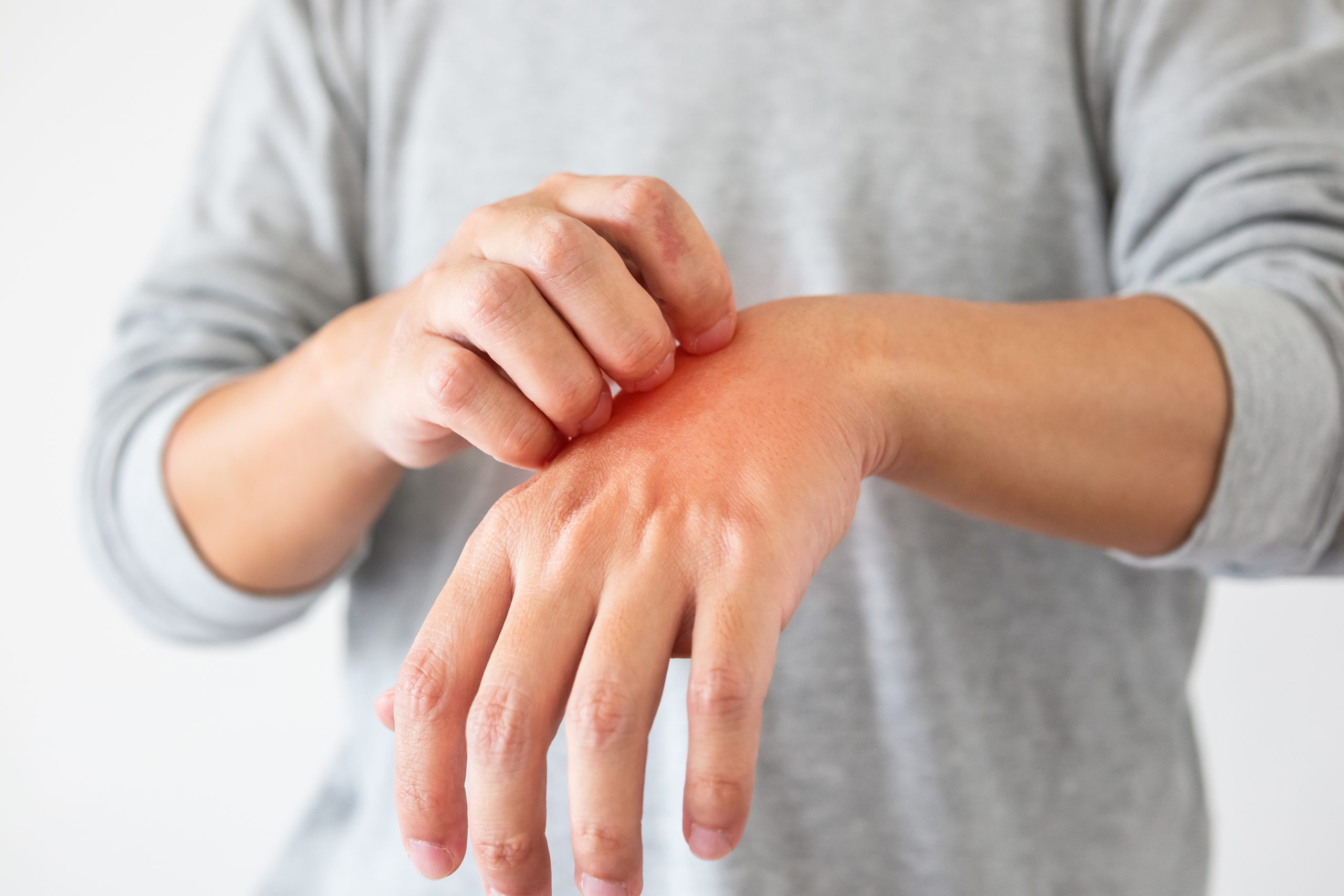ECZEMA
Eczema is a group of inflamed skin conditions that result in chronic itchy rashes. Symptoms vary from person to person but often include dry, red, itchy patches on the skin which break out in rashes when scratched.
Objects and conditions that trigger itchy eczema outbreaks may include rough or coarse materials touching the skin, excessive heat or sweating, soaps, detergents, disinfectants, fruit and meat juices, dust mites, animal saliva and danders, upper respiratory infections and stress.
Treatment involves the restriction of scratching, use of moisturizing lotions or creams, cold compresses and nonprescription anti-inflammatory corticosteroid creams and ointments.
ROSACEA
Rosacea is a chronic skin condition that causes redness and swelling on the face. Symptoms range from red pimples, lines and visible blood vessels to dry or burning skin and a tendency to flush easily. While there is no cure for rosacea, there are plenty of effective treatments available.
Daily use of sunscreen is essential to reduce the likelihood of rosacea flare ups. Topical treatments can successfully decrease the appearance of symptoms.
PSORIASIS
Psoriasis is a term that encompasses a group of chronic skin disorders that affect any part of the body, but most frequently affect the scalp, elbows, knees, hands, feet and genitals. In addition, it may be categorized into different types: plaque, pustular, erythrodermic, guttate or inverse psoriasis. Most forms involve an itching and/or burning sensation, scaling and crusting of the skin.
Psoriasis cannot be cured but it can be treated successfully, sometimes for months or years and occasionally even permanently. Treatment depends on the type, severity and location of psoriasis; the patient’s age, medical history and lifestyle; and the effect the disease has on the patient’s general mental health. The most common treatments are topical medications, phototherapy, and oral or injectable medication (for severe symptoms).
Full-body skin exams are an essential method of screening patients for benign or cancerous lesions that they may not have been able to see or recognize on their own. By using a 5x magnifier and looking at all of your skin, our doctors can often find potentially life-threatening growths in a timely manner. From head to toe and back to front, we inspect the skin for any suspicious growths. This quick and painless preventive measure is an invaluable tool in the early detection of skin cancer as well as many other dermatological conditions.
Medical attention is necessary after noticing any skin changes, as early detection is valuable in successfully treating skin cancer. Regular full body screening is recommended as well. A biopsy is usually performed to accurately diagnose suspected cancerous growths.
While most moles and other skin growths are not of medical concern, it is important to screen for cancer and other skin conditions that can develop in some cases. Full-body skin exams to detect any new moles and growths, as well as to monitor existing growths, are recommended on a yearly basis in order to screen for skin cancer and detect any abnormalities in their earliest stages.


